
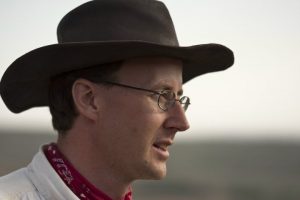
Scott Branting
University of Central Florida
Scott Branting is an archaeologist with specializations in the ancient Near East and geospatial science. He holds advanced degrees in archaeology and geography from the University at Buffalo and the University of Chicago. For ten years he served as the Director of the Center for Middle Eastern Landscapes (CAMEL) at the Oriental Institute of the University of Chicago. Scott is also involved in using satellite images to monitor cultural heritage sites from space, and has worked on archaeological projects around the world.
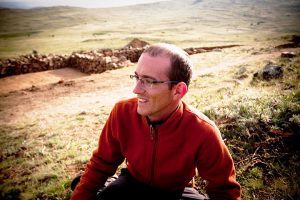
The University of Sydney
Joseph Lehner is a Lecturer in Archaeology at The University of Sydney and Australian Research Council Discovery Early Career Award Fellow. He finished his PhD at the UCLA Cotsen Institute of Archaeology and is a past Alexander von Humboldt German Chancellor Fellow at the University of Tübingen and a Senior Fellow at the Research Center for Anatolian Civilizations at Koç University in Istanbul. He conducts extensive field work in Türkiye and Oman, and has been involved in projects elsewhere in Egypt, Ethiopia, India, Australia, and Arctic North America. His research focuses on the social, environmental, and cultural impacts of strategic resource management, in particular mining and metallurgy.
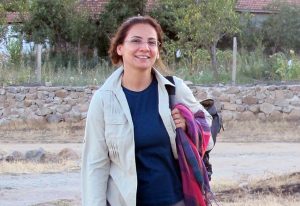
Istanbul Technical University
Sevil Baltalı Tırpan received her M.A in Near Eastern Archaeology from the University of Chicago and PhD in Anthropology from the University of Virginia. She is now an assistant professor in the Department of Humanities and Social Sciences at Istanbul Technical University. She worked on the topics of architecture and symbolism and the anthropology of houses and ritual spaces. Trained both in archaeology and anthropology, her areas of most recent research explores the topics of politics of the past, heritage and culture, local perceptions of the past, impact of archaeological praxis on local people, ethnography of archaeology, space/place, memory, materiality and time. Along those interests she organized (with Aybil Goker) an international conference entitled, “Materiality, Memory and Cultural Heritage” in 2011 sponsored by Tübitak, Istanbul Technical and Yeditepe Universities. She has been conducting traditional and digital ethnographic field work on the local perceptions and representations of the past and place in Şahmuratlı village in Yozgat, Türkiye.
Simon Fraser University
Gökçe Bike Yazıcıoğlu is an Anatolian archaeologist, whose current research focuses on isotopic investigations of human mobility and cultural dynamics of integration in early complex societies. Bike (Bee-kah) is the second Associate Director of Kerkenes Project, where she oversees excavations at the site and takes part in facilitating the project’s public outreach efforts. After Istanbul University (BA), she completed her graduate studies in Near Eastern Archaeology at the University of Chicago (MA and PhD), where she also taught and worked as project assistant. Bike has worked at excavations and surveys in Türkiye since 1998 and continues to work as a translator and editor of publications on Anatolian archaeology since 2001. For more information about her research and published work, visit her academic profile and academia.edu.
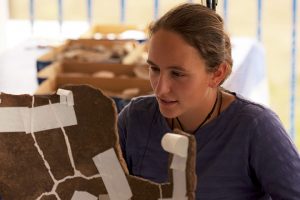
University of Toronto
Dominique Langis-Barsetti received her Ph.D. from the Department of Near and Middle Eastern Civilizations at the University of Toronto. She specialises in geophysics, remote sensing, 3D modelling and simulation, and ancient urbanism. Langis-Barsetti has been an active member of the Kerkenes Project since 2010 and has been an instructor on the Kerkenes Fieldschool since its inception in 2016.
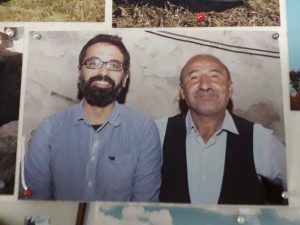
Leiden University
Tuna Kalaycı is an Assistant Professor of Archaeological Computer Sciences at Department of Archaeological Sciences at Leiden University. His interests include urban studies, production landscapes, landscapes of movement, and sensor data. Tuna holds degrees in Statistics (BSc, METU-Ankara), Settlement Archaeology (MSc, METU-Ankara), and Anthropology (PhD, University of Arkansas-Fayetteville). Before joining Leiden University, he held a post-doctoral researcher position at the IMS-FORTH (Greece) and a Marie Skłodowska-Curie Individual Fellowship at the ISPC-CNR (Italy).
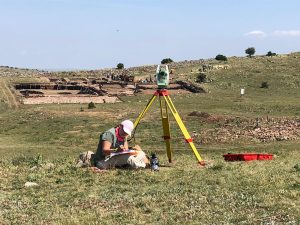
Jessica Robkin
Geospatial Coordinator
University of Central Florida
Jessica Robkin is an Assistant Professor in the History department at the University of Central Florida. She is a UCF graduate, a member of the ChronoPoints Project for the digital documentation of culture, and specializes in geospatial studies, social organization, modelling and simulation, and heritage protection and management. She has been a part of the Kerkenes Project since 2019.
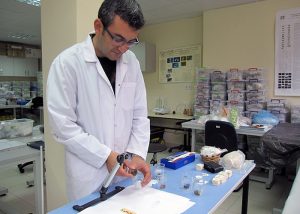
Soran Avcil
Senior Conservator
Soran is a freelance conservator. He carries a bachelor's degree from Batman University and studied archaeology at the University of Foggia. He undertook postgraduate courses at Gazi University. He has been a member of Kerkenes team since 2015, and also works at Çadır Höyük, Tell Tayinat and other projects in Türkiye. His archaeological conservation and experimental conservation studies continue.
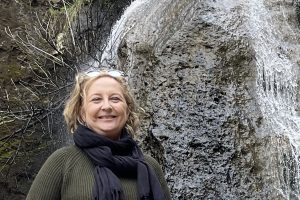
Architectural Documentation and Preservation Coordinator
Mustafa Kemal University
Nilüfer Baturayoğlu Yöney is a preservation architect specializing in archaeological survey, documentation and preservation methods, heritage management, and the history, characterization, and conservation of building materials and technologies. Prior to becoming a professor at MKU, she worked at Abdullah Gul University and Istanbul Technical University, where she received her PhD. In addition to working at several archaeological sites in Türkiye, she has been a member of the Kerkenes Team since 1993. She has documented most of the structures at Kerkenes and acted as the architectural consultant for the restoration project at the Cappadocia Gate.
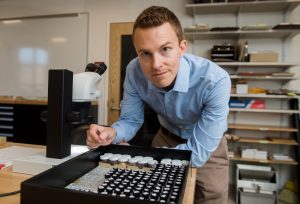
Boston University
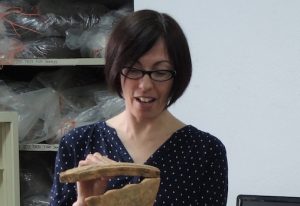
Barrett, The Honors College, Arizona State University
Sarah R. Graff is an archaeologist who received her Ph.D. in Anthropology from the University of Chicago in 2006. Her research examines social interactions, especially in the context of the production, exchange and consumption of ceramic containers. She analyzes ceramic production techniques and ceramic use, such as ceramics used for cooking and food preparation, in context. Methodologically she uses petrographic analysis to learn more about production techniques. Sarah has worked on archaeological projects in Syria, Türkiye, and Oman, including projects she designed, funded, and directed. She was a Harper-Schmidt Fellow at The University of Chicago and held an American Association of University Women (AAUW) Post-Doctoral Fellowship before joining the faculty at Barrett, The Honors College at Arizona State University.
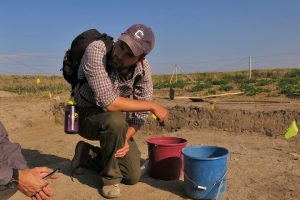
Institut für Archäologische Wissenschaften
J.W. Goethe-Universität Frankfurt am Main
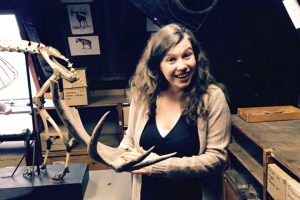
Groningen University
Canan is the senior zooarchaeologist of the project and the director of the zooarchaeology lab of the Institute of Archaeology at Groningen University, Institute of Archaeology. Her research interests include the dispersal and development of husbandry technologies, management of aquatic resources, climatic fluctuations and societal change, provisioning of state-level societies, and human impact on Holocene zoogeography. Her previous studies in western Türkiye have focused on Ulucak, Yenibademli, and Troy. For more information, please visit her academic profile and the Archaeozoology Laboratory at Groningen University.
Official Site Guard
Kadir Erciyas
